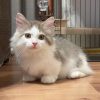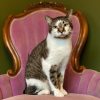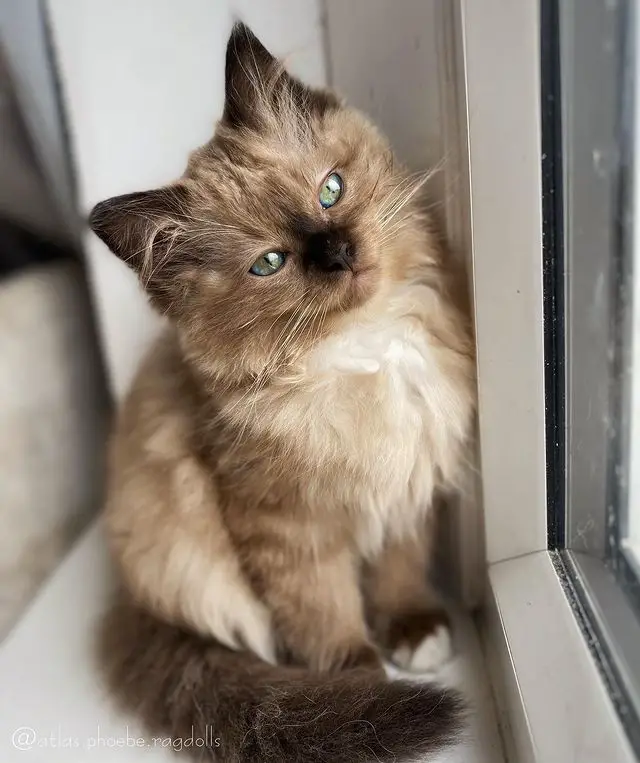
Compared to dogs, cats have a reputation for restricting affection and being somewhat distant. But many cats love to cuddle up with the people they like. An affectionate cat is waiting for you, whether you want one to sit on your lap while you watch TV or cuddle up after a game of chase. People often say that cats aren’t affectionate. While some cats are indifferent to their owners, others enjoy socializing with their beloved humans. Many cat breeds are very loving and affectionate, but they often have high social needs.
Even though the breed isn’t the only thing that affects a cat’s personality, it can be a part of it.
Factors that cause a cat to be affectionate
Even though cats of the same breed come from similar parents and have similar looks and personalities because of this, every cat is unique. According to an expert, kittens begin to develop behavior between 3 and 7 weeks. If a kitten doesn’t get to know people when it’s young, it probably won’t grow up to be too affectionate. Of course, if they have a terrible experience with someone, like being ignored or hurt by one, they might not fear people in the future, even if they meet loving ones.
Several factors may influence their preference for people as they progress through life. Here are some of the factors:
Gender
Research shows that cats generally prefer female owners because they respond better to softer, higher-pitched voices. The gender of a cat does not affect their amount of affection or their choice of male or female owners. Both male and female cats will seek affection in their unique manner.
Spayed/neutered or intact
Intact cats (not spayed or neutered) may seek affection somewhere else. While your cat might be irritable initially, even those who have to bear the shame because of the annoying operation will eventually forgive you and likely want your attention.
Pregnancy
When a cat is pregnant, its motherly instincts can be positive or negative. During pregnancy, they may be more affectionate, but they may also be more protective of their kittens and express anger.
Hunger
When cats are hungry, they tend to be more affectionate. They are experts at identifying the causes and how to get our attention quickly.
Age
Noticeably, cats do not become more affectionate with age. Seniors may hang out with you a lot more, but those with arthritis or other pains that come with getting older may be more sensitive to touch and not want to be petted as much as they used to.
9 Most Affectionate Cat Breeds
1. Ragdoll
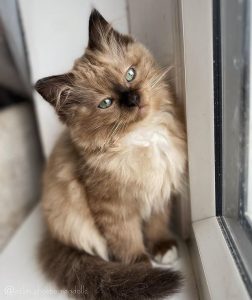
2. Maine Coon
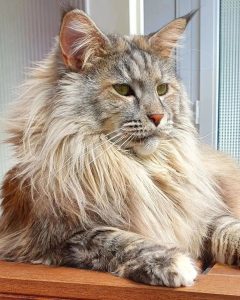
Additionally, Maine Coons are highly trainable and friendly, and many have been trained as therapy cats, visiting patients in hospitals and senior care facilities. Maine Coons are affectionate and desire closeness, but they are not too possessive and are typically not lap cats. They can be interesting to observe due to their tendency to participate in despicable actions and get into everything.
3. Siamese

4. Scottish Fold
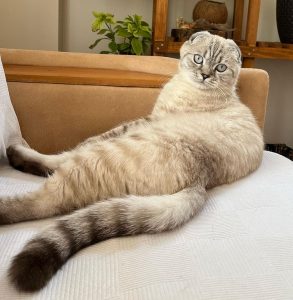
5. Sphynx
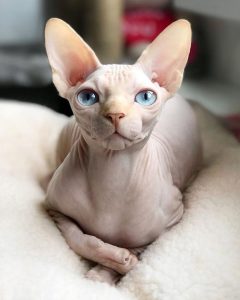
6. Persian
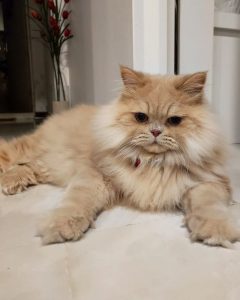
7. Tonkinese
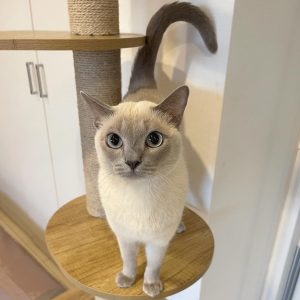
8. Bombay
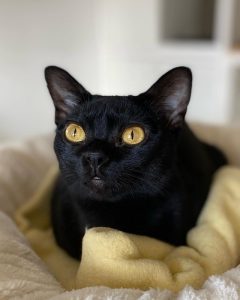
9. Birman
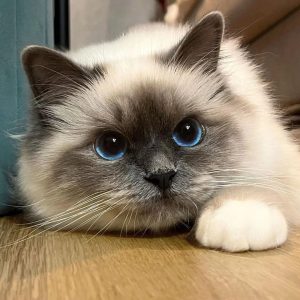
9 Most affectionate cat breeds overview
Breed |
Height |
Weight |
Coat |
Color |
Personality |
Lifespan |
Ragdoll |
11-13 inches |
10-20 lbs |
Long and soft |
White bodies pointed markings |
Affectionate, sweet, and patient |
13-18 years |
Maine Coon |
Up to 16 inches |
9-17 lbs |
Long and silky |
White bodies pointed markings |
Affectionate, sweet, and intelligent |
13-18 years |
Siamese |
Up to 14 inches |
6-14 lbs |
Short coat |
Variety of colors |
Affectionate, sociable, friendly, and vocal |
Up to 12 years |
Scottish Fold |
8-10 inches |
6-13 lbs |
Short and long |
Variety of colors and patterns |
Affectionate and adaptable |
11-14 years |
Sphynx |
8-10 inches |
6-12 lbs |
Hairless |
Variety of colors |
Affectionate and loyal |
9-15 years |
Persian |
10-15 inches |
7-12 lbs |
Long and soft |
Variety of colors and patterns |
Affectionate, quiet, and sweet |
8-11 years |
Tonkinese |
8-10 inches |
6-12 lbs |
Short and silky |
Cream or mink with darker points on the face, ears, and paws |
Affectionate, intelligent, and sweet |
8-12 years |
Bombay |
Up to 14 inches |
6-14 lbs |
Short |
Cream or fawn with brown or black points |
Affectionate, social, and athletic |
13-18 years |
Birman |
8-10 inches |
12 lbs |
Long single layer |
Pointed and cream |
Affectionate, quiet, and loyal |
13-15 years |
Conclusion
It is no surprise that some cat breeds are more affectionate than others. How difficult it may be to define something as simple as what makes a cat passionate is astonishing. Everyone enjoys the affectionate nature of cats, but you should never take it for granted. A loving cat is an ideal companion. You only need to learn how to have the best possible relationship with this adorable creature, who will bring you much happiness in return. If your cat does not exhibit affection for you, it does not mean that he does not love and care for you; if you maximize his social needs, he will quickly develop an attachment to you.
FAQs
Is it possible to make your cat more affectionate?
A cat cannot be forced to do anything. Particular cats can learn commands and do tricks, but you never truly “possess” a cat because they obey your every command. However, you can do several things to encourage your cat to show more affection.
What makes cats more affectionate?
Cats that people raised tend to be more loving and caring.
Does coat color influence your cat’s personality?
Even though it is possible that coat color influences personality, it is also essential to examine other factors.

